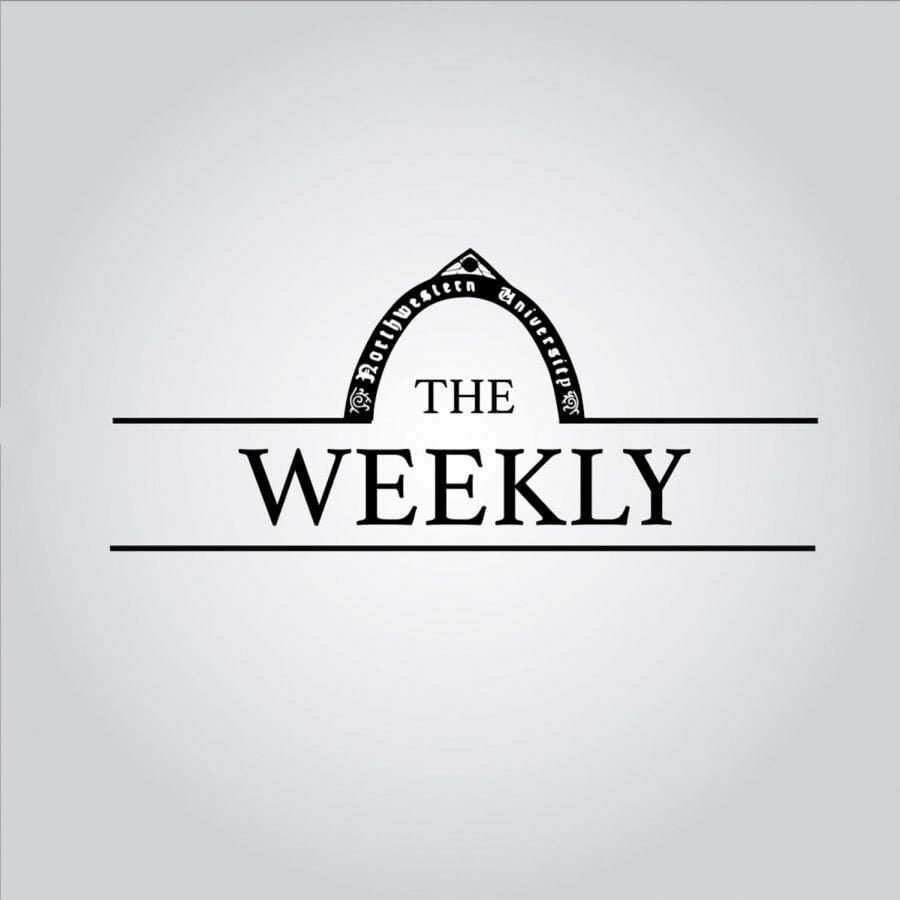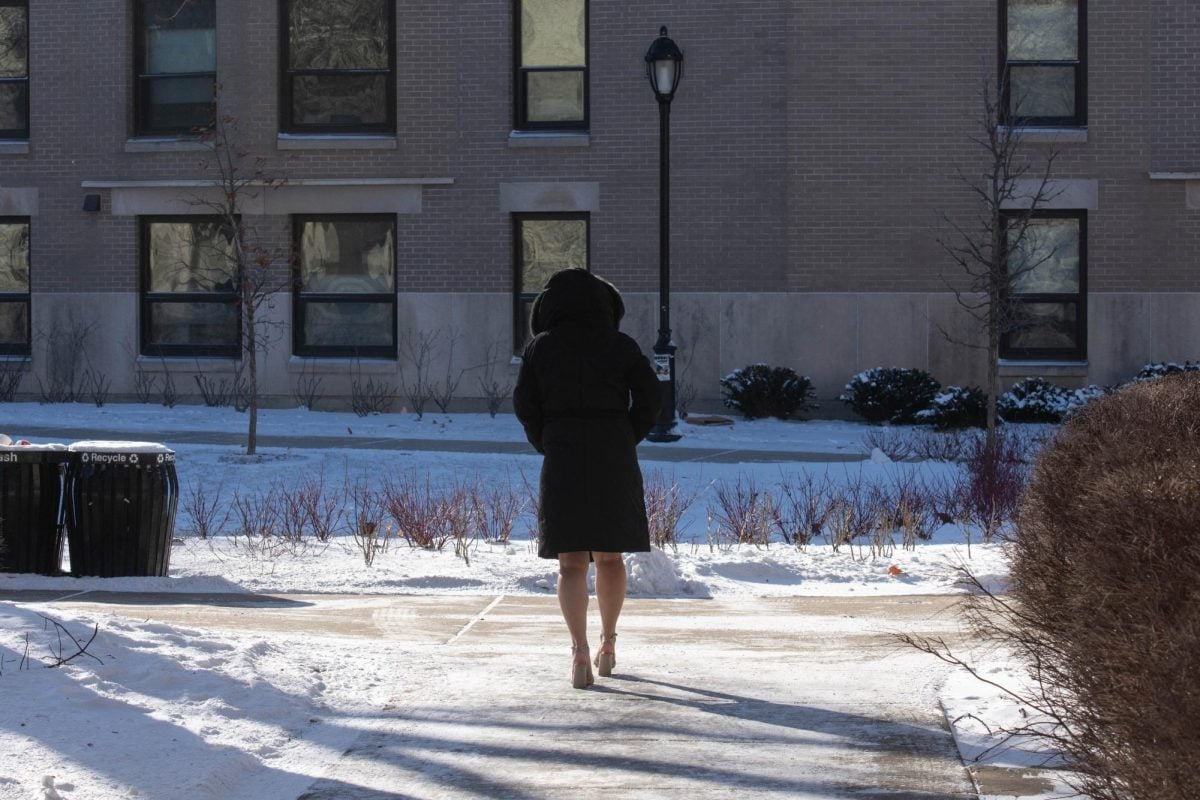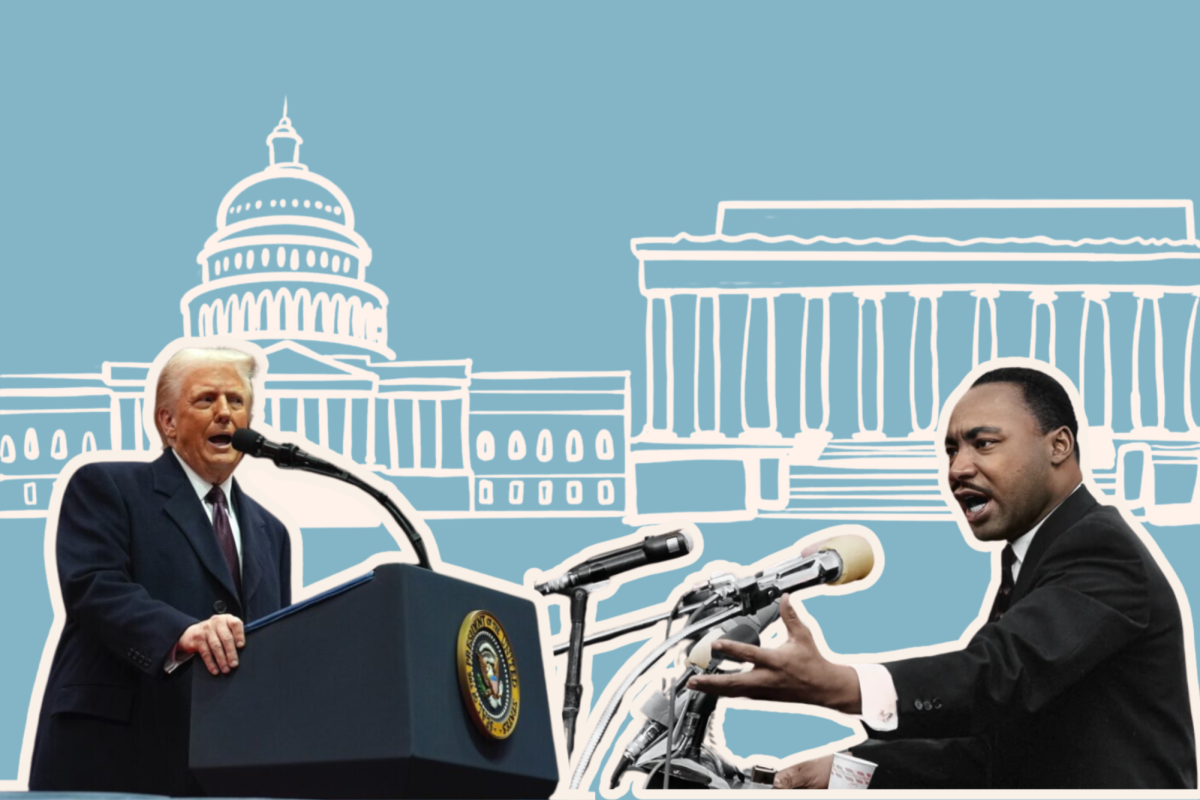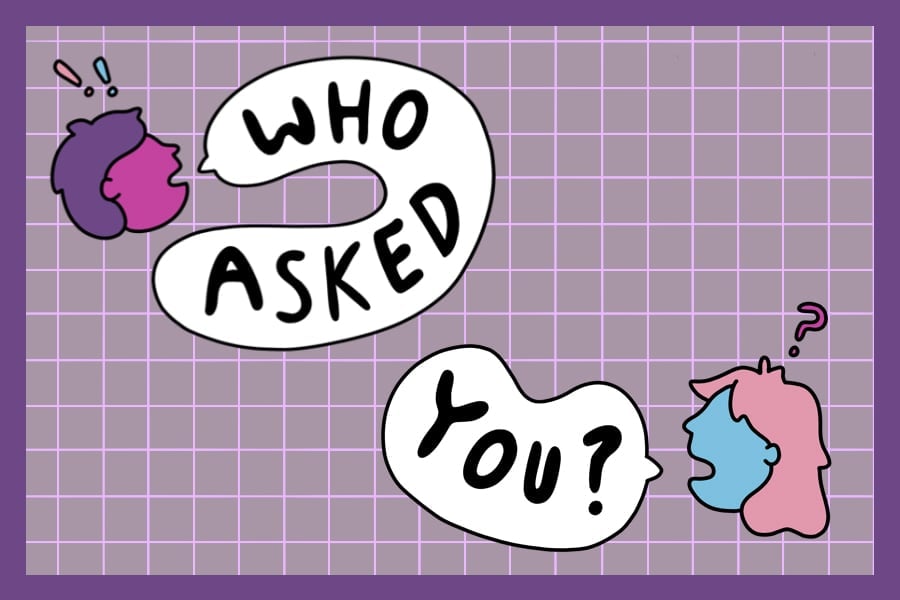
 What’s on the ballot for Evanston voters this election season? What will happen to the seventh and eighth grade classes at the Dr. Bessie Rhodes School of Global Studies? The Daily answers these questions and recaps other top stories from the last week.
What’s on the ballot for Evanston voters this election season? What will happen to the seventh and eighth grade classes at the Dr. Bessie Rhodes School of Global Studies? The Daily answers these questions and recaps other top stories from the last week.
EDWARD SIMON CRUZ: Various state and county positions are up for grabs this election season.
Parents at a local magnet school remain concerned about the future of its seventh and eighth grade classrooms.
And Northwestern has responded to a House committee report about on-campus antisemitism.
From The Daily Northwestern, I’m Edward Simon Cruz. This is The Weekly, a breakdown of our top headlines from the past week.
Our first guest today is City Editor Shreya Srinivasan. She’s here with me to talk about some of the upcoming races and voter patterns ahead of Election Day on Tuesday.
Obviously, all eyes are on the presidential race between Republican Donald Trump and Democrat Kamala Harris, but there are also some key races at the county and state levels to look out for as well. The Daily has a list of these races on our website and an election guide where you can learn more about the candidates.
Shreya, we also see that there are three advisory questions that will be on the ballot this year for Evanston voters. Can you explain what these advisory questions are in general and then walk us through the key things that each of these questions will be asking about?
SHREYA SRINIVASAN: Yeah, Edward. So this year, there are three advisory referenda on the ballot. Advisory just means that these referenda will not be binding and will have no legal effect whether, at the end of the night, they end up turning out to be “yea” or “nay.”
The three advisory referenda on the ballot this year are about election worker protection, property tax relief and assisted reproductive health coverage for insurance.
To start, we could talk about the election worker protection referendum. It basically asks, “Should any candidate appearing on the Illinois ballot for federal, state or local office be subject to civil penalties if the candidate interferes or attempts to interfere with an election worker’s official duty?”
What this referendum is basically asking is if a candidate or any individual acting on behalf of the candidate interferes with election workers, then they may be subject to civil penalties. We’ve all read, in the past year, several states, including New York and Pennsylvania, enacting anti-election interference laws in anticipation for this upcoming election. This referendum would add to that.
The next referendum on the ballot is about property tax relief. This referendum would create an additional 3% tax on income greater than a million dollars for the purpose of dedicating those funds to raising the property tax relief. In essence, a yes vote on this referendum would advise state officials to amend the Illinois Constitution to raise the income tax. According to the Illinois Department of Revenue, the state could generate almost $4.5 billion in revenue from this 3% tax.
The third referendum asks if all medically appropriate assisted reproductive treatments, (also known as) treatments similar to IVF, in vitro fertilization, be covered by any health insurance plan in Illinois without limitation on the number of treatments. Currently, group insurance plans and health maintenance organizations in Illinois already cover IVF, but this referendum would create the extra provision without limiting the number of treatments allowed on that plan.
EDWARD SIMON CRUZ: And what are some key trends in voter behavior that Evanstonians should look out for based on what we see in the coming days?
SHREYA SRINIVASAN: A few trends, most notably, one that’s been a bit more national in scope, is the Uncommitted Movement started in Michigan, just a few states away. The Uncommitted Movement, a group of people who withheld their votes during the 2024 primary election in protest of the United States’ handling of the war in Gaza, has also bled a bit into Illinois and Evanston. Although Evanston showed a 76% voter turnout rate in the 2020 election, it’ll be interesting to see in the coming days what the voter turnout is in this general election compared to 2020. And in future reporting, we can see if any of that is due to the Uncommitted Movement.
Evanston as a city is pretty democratic, with only 8% of votes cast going to incumbent Donald Trump in the 2020 election. As I said in the next coming days, it will be interesting to see if that percentage point increases or decreases. But still, with Evanston being almost 90% Democratic, the chances of the voter percentage rate for a Republican candidate to increase is very slim.
EDWARD SIMON CRUZ: That was City Editor Shreya Srinivasan speaking to us about Evanston’s election races and what to look out for among voter behaviors in the coming days. Shreya, thank you very much.
Early voting remains open at the Lorraine H. Morton Civic Center through Monday, and Illinois voters can still register to vote in person through Election Day. Visit dailynorthwestern.com to find a list of polling places in Evanston and The Daily’s full 2024 election coverage.
Our next guest is Anavi Prakash, one of The Daily’s development and recruitment editors. We’ve both been on the education beat for a bit, and during that time, Evanston/Skokie School District 65 has been clashing with parents at the Dr. Bessie Rhodes School of Global Studies, a K-8 magnet school.
This fall, there’s been a new wave of protests tied to Bessie Rhodes. In mid-October, the superintendent (Angel Turner) announced the school’s seventh and eighth graders would move back to their neighborhood schools, effective Nov. 15. She said the staffing shortages at the school led to this decision. What’s happened since then?
ANAVI PRAKASH: The day after making the announcement, Turner planned to meet with parents. However, she canceled the meeting due to the Zoom link being public, and the district was concerned the meeting wouldn’t be a safe space anymore. District administrators then met with families individually to discuss the announcement and their transition to neighborhood schools.
Then, before the October District 65 Board of Education meeting, families and community members protested the closure of seventh and eighth-grade classrooms. Parents at the protest said they were blindsided by the decision, and they felt that their choice to go to Bessie Rhodes, a magnet school, was invalidated. However, a lot of parents also still had hope. They said that even though the district made a mistake once in not communicating with them, not having transparency about the staffing issues that were going on at Bessie Rhodes, they still have a chance to redeem themselves by keeping clear lines of communication while they navigate this decision. And for many parents, the best decision that the district could make is to let seventh and eighth graders finish out the school year at Bessie Rhodes.
Then, at the meeting following this protest, the district presented three new plans for what would happen to seventh and eighth graders. First, they would let students finish the school year at Bessie Rhodes with a modified staffing plan, where other educators in the district would teach their classes. The second option was to move all seventh and eighth graders to another K-8 magnet school, (the Dr. Martin Luther King Jr. Literary and Fine Arts School). And the third option was to split the students up (by grade).
The district then had parent meetings with seventh and eighth graders the next day, and at those meetings, many parents said they preferred keeping their students at Bessie Rhodes with the modified staffing plan. The district sent out a survey the next morning, Wednesday morning, to see what families preferred when it came to those four plans, and families had until this past weekend to complete it.
Even as (parents) have all these options presented now, many still end in some kind of closure or shift in schools. And several are still concerned about how shifting schools will impact their families’ day-to-day lives, including transportation to school and, if a family has several children in the District 65 schools, then how to navigate different timings and issues in different buildings if they arise.
EDWARD SIMON CRUZ: That was Development and Recruitment Editor Anavi Prakash on the recent controversies surrounding planned closures at the Dr. Bessie Rhodes School of Global Studies.
Here are the other top headlines from the week:
The University disputed a report from the House Committee on Education and Workforce about on-campus antisemitism. NU said the report included, quote, “unfair characterizations” of University President Michael Schill and other officials.
City Council hit “pause” on a proposal that would prohibit landlords from only allowing certain dog breeds in residences.
Vertigo Productions continues preparing for its fall show, “The Seagullman,” ahead of next weekend’s performances.
In football, the Wildcats took down the Purdue Boilermakers 26-20 in overtime. The ’Cats are now 4-5 and 2-4 in the Big Ten.
And some Latino employees in the Evanston Public Works Agency are criticizing the group’s hiring process, saying it lacks fairness and transparency.
From The Daily Northwestern, I’m Edward Simon Cruz. Thanks for listening to another episode of The Weekly. This episode was reported and produced by me, Shreya Srinivasan and Anavi Prakash.
The audio editor of The Daily Northwestern is me, Edward Simon Cruz. The digital managing editors are Carlotta Angiolillo and Sasha Draeger-Mazer. The editor in chief is Jacob Wendler.
Our theme music is “Night Owl” by Broke for Free, used under a Creative Commons Attribution License and provided by the Free Music Archive.
Follow us on X and Instagram @thedailynu. We’ll be back next Monday with another episode of The Weekly.
Email: [email protected]
Email: [email protected]
X: @shreyasrin
Email: [email protected]
X: @anavi_52
Related Stories:
— Illinois to vote on three advisory referenda: elections, taxes, IVF
— Teacher shortages, “mismanagement” plague Bessie Rhodes, parents say
— Northwestern responds to House committee antisemitism report




